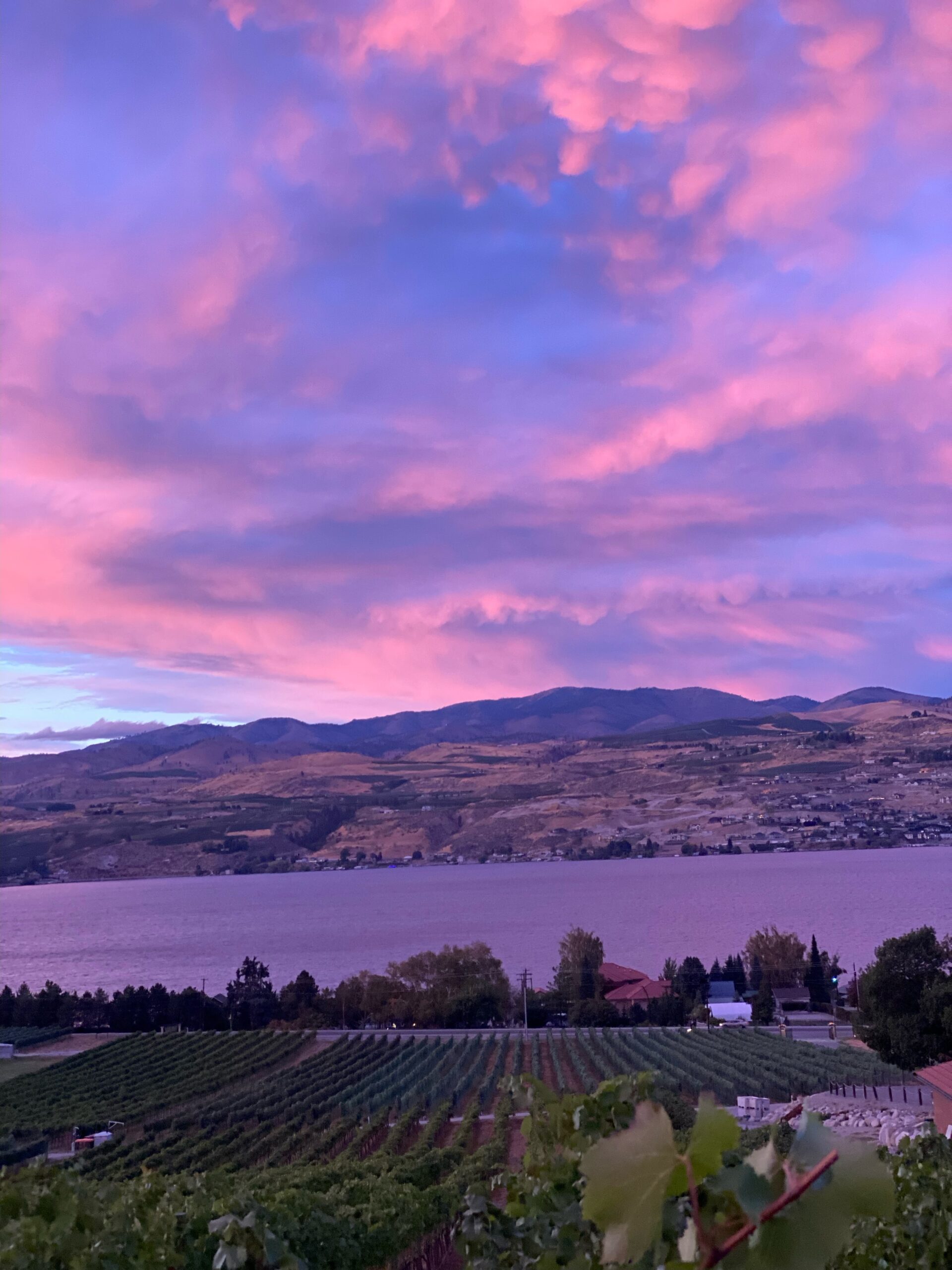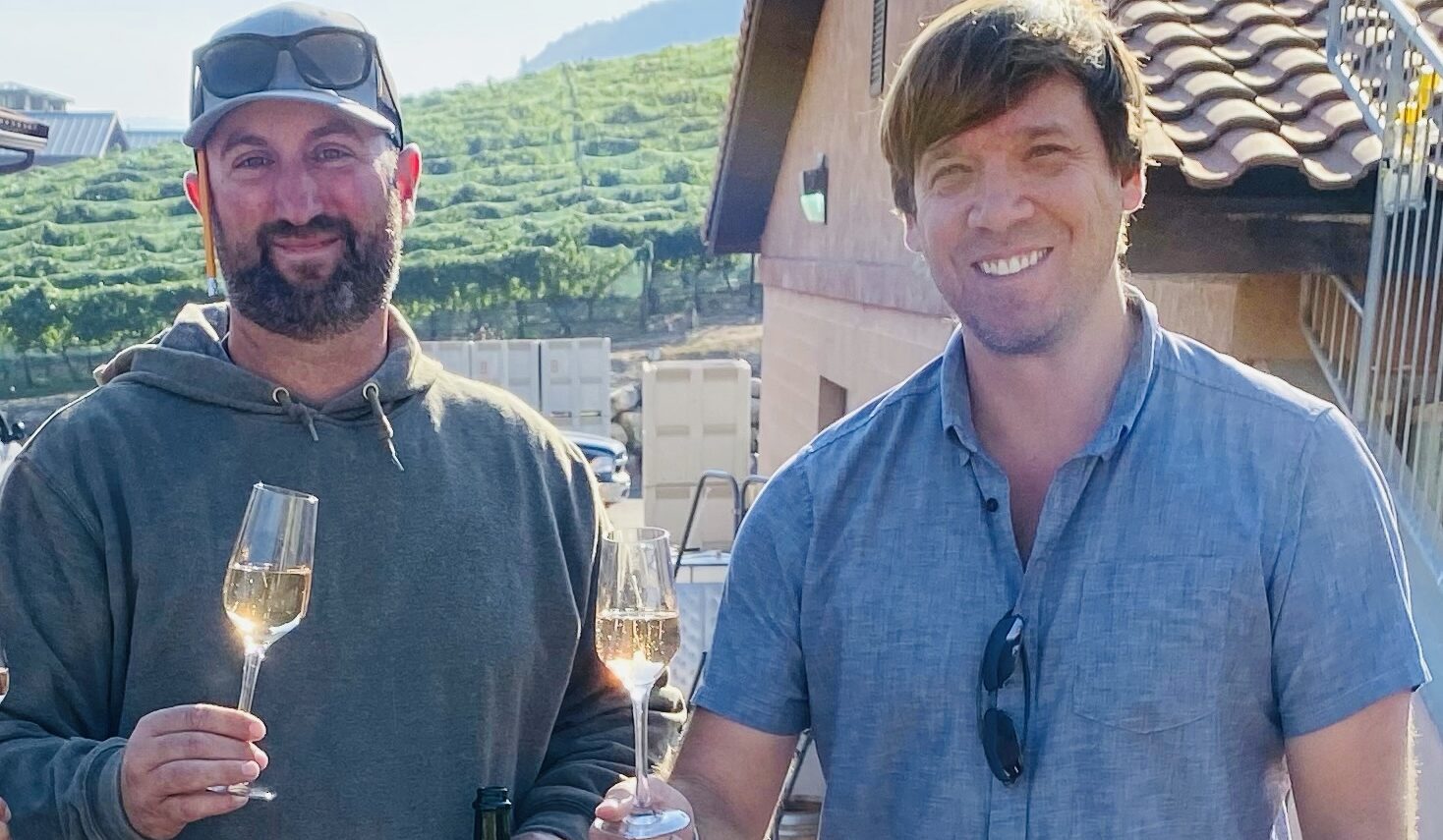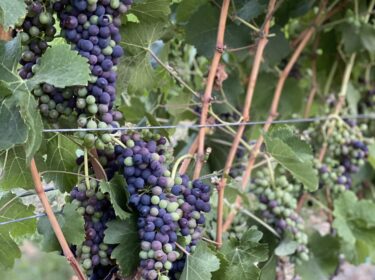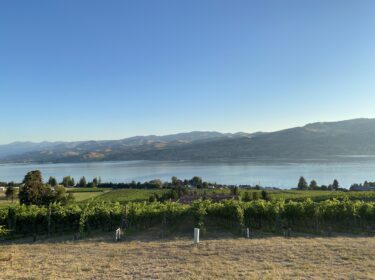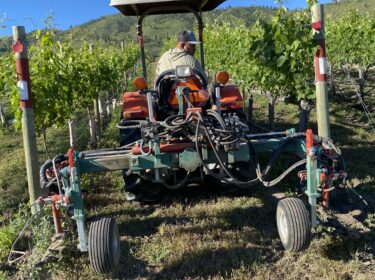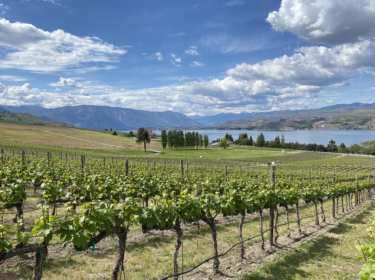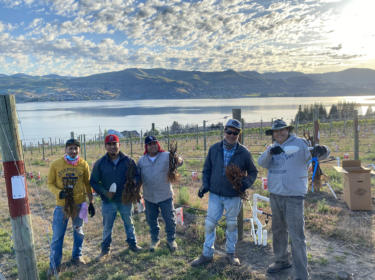“He sido local toda mi vida.”
Meet Nic Stevens, Vineyard Manager and Assistant Winemaker at Tsillan Cellars in the Lake Chelan Valley. With just over one year under his belt, Nic is relatively new to wine, but not to Washington. “I grew up in East Wenatchee. My grandparents had an orchard in the Entiat Valley, which is where I lived my first few years. We moved to East Wenatchee, which is where I graduated from. But I bought my grandparents orchard. I live on that property now. I’m fifth generation.” Nic comes to wine from a career of 19-years working for Les Schwab, which means manual labor is nothing new to Nic. But there’s nothing quite like harvest. “When you get off from a 14-hour day and think that you’re ‘off early,’ it changes the way you see things.”
I always knew I wanted to farm. I never knew what kind, but I always figured I would.—Nic Stevens, Tsillan Cellars
Traducido por Rosanna Lugo
Washington Wine: Empecemos por dónde estás. Cuéntanos un poco sobre tu trabajo, título, a qué te dedicas y cuánto tiempo llevas allí.
Nic Stevens: Trabajo para Tsillan Cellars. Soy Asistente de Enólogo y Gerente del Viñedo. He estado con Tsillan Cellars desde septiembre del 2020.
WW: ¿Cómo entraste en la industria? ¿Creciste en la agricultura?
Nic: Mi familia, mis abuelos, bisabuelos, siempre tenían manzanas en el valle de Entiat, que está justo al otro lado de la colina desde aquí, pero en realidad no estaba demasiado involucrado en eso. De hecho, pasé los últimos 19 años en una profesión diferente.
No crecí en un hogar donde bebían vino. No diría que me oponía al vino, simplemente no tenía idea de qué se trataba. Después de algunos empujones y empujones de mi esposa, me hizo ir a las salas de gustación y simplemente despegó a partir de ahí. El amor y la pasión crecieron orgánicamente. Incluso cuando estaba con mi última profesión, me había inscrito en el Programa de Certificado de Viticultura y Enología de WSU. El plan era terminar el programa y ver qué pasaba, pero el destino intervino.
Terminé teniendo que dejar mi profesión anterior debido a un par de cirugías en la espalda. Una vez que obtuve la autorización médica, solicité un trabajo de interno de cosecha en Tsillan Cellars y eso me llevó a donde estoy hoy.
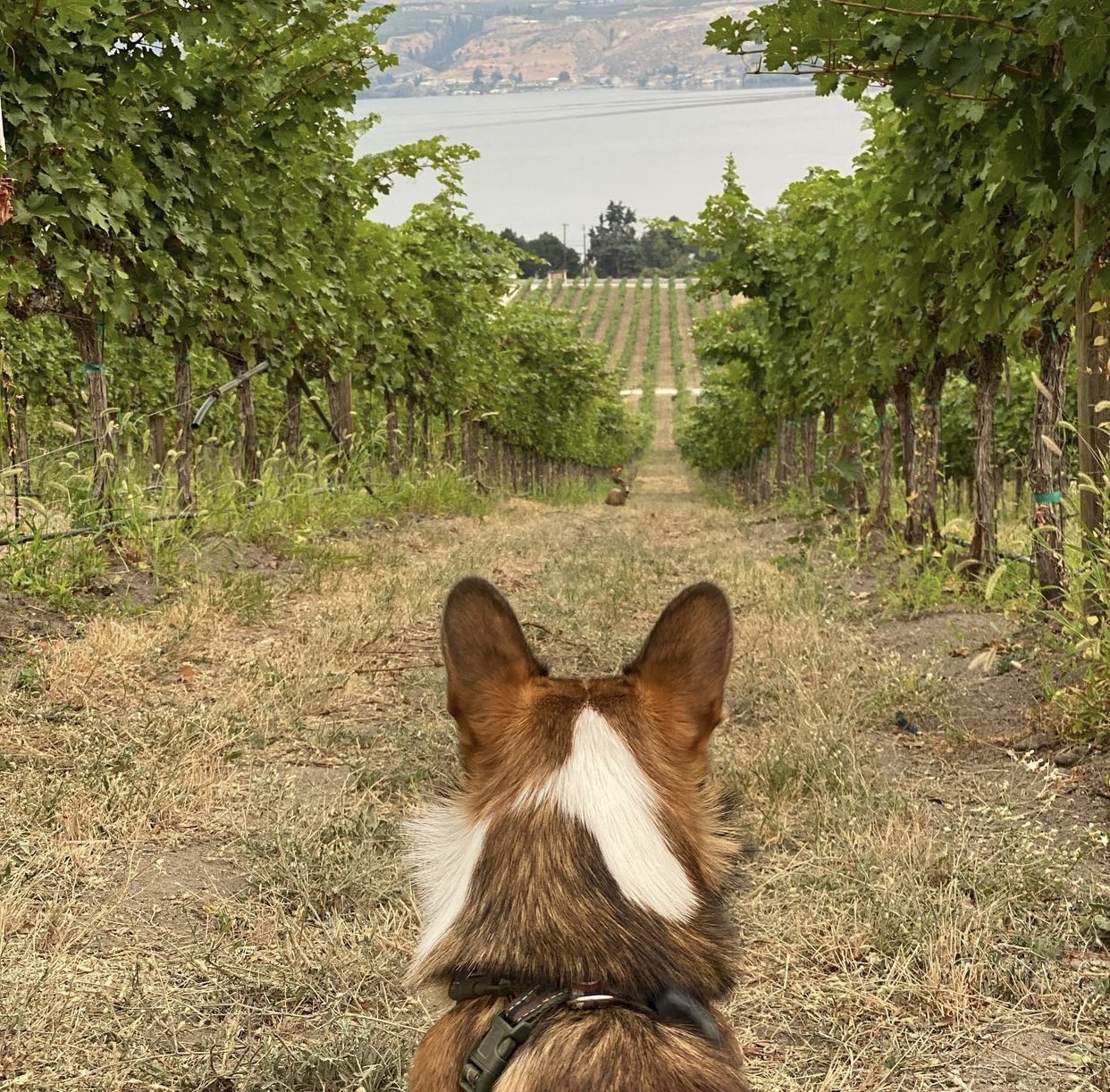
WW: Entonces, ¿cuánto tiempo hace que empezaste en Tsillan?
Nic: Empecé con Tsillan Cellars el primer día de cosecha en septiembre de 2020. Fue pura suerte que todavía estuvieran buscando ayuda tan cerca de la cosecha.
WW: Tienes una perspectiva tan interesante, siendo nuevo en la industria. ¿Qué es algo que ves diferente en este lado?
Nic: Supongo que el glamour percibido de ser enólogo. Todos los que no trabajan en vino siempre dicen: “Estás caminando con una copa de vino, oliendo y probando, ¿verdad?” Eso es el 1% de eso. Eso es lo divertido. La mayor parte del trabajo, desde la primavera hasta el verano, son largas horas de trabajo en las vinas, asegurándose de que todo vaya bien con el riego y todo. Creo que lo más importante que la gente no entiende es la cantidad de trabajo que implica. Y la limpieza. Eres básicamente un custodio glorificado. Es solo la cantidad de limpieza que se dedica a la desinfección de tanques, bombas y mangueras. Estás constantemente limpiando. Diría que la limpieza es el 95% del trabajo. Creo que eso es lo más importante que la gente no entiende. Detrás de las cortinas, hay mucho trabajo y trabajo en marcha, y no solo por mí, sino por todos los demás involucrados. Hay mucho trabajo envuelto que se dedica por tu copa de vino.
Hay mucho trabajo envuelto que se dedica por tu copa de vino.
WW: ¿Cómo es tu equipo? ¿Y cuál es la vibra que has recibido de la gran comunidad de Chelan desde que trabajas allí?
Nic: En la bodega tenemos nuestra mano de bodega Javier, yo y Tsillan Cellars consultando al enólogo Garret Grubbs. También tengo el placer de estar involucrado en los viñedos. Empleamos a 5 personas de tiempo completo para administrar los viñedos de nuestra finca. Trabajan incansablemente durante todo el año para traernos uvas de la mejor calidad posible. Esos muchachos merecen mucho crédito por la calidad del vino producido por las uvas que cultivan.
En cuanto al valle del vino del Lake Chelan, es muy unido. Es una comunidad pequeña, casi todos conocen a todos. Todos están dispuestos a ayudar, ya sea con una pregunta o si necesitan algo prestado. Todo el mundo está a una llamada de distancia. O, en algunos casos, pueden estar justo al lado. No hay “descúbrelo por tu cuenta”. Si necesita algo, necesita algo prestado, venga a buscarlo. Y va para ambos sentidos.
WW: Dijiste que tus abuelos tenían huertos no muy lejos de Chelan. Tengo curiosidad por saber más sobre esa crianza.
Nic: Crecí en East Wenatchee, que está entre 45 minutos y una hora de Chelan. Mis bisabuelos y luego mis abuelos tenían un pequeño huerto familiar en Entiat Valley, que se encuentra entre Chelan y East Wenatchee. Era un lugar especial para crecer. Tú podrías correr libre y ser un niño. Vivimos en el Valle Entiat durante los primeros años de mi vida y luego nos mudamos a East Wenatchee. He sido local toda mi vida.
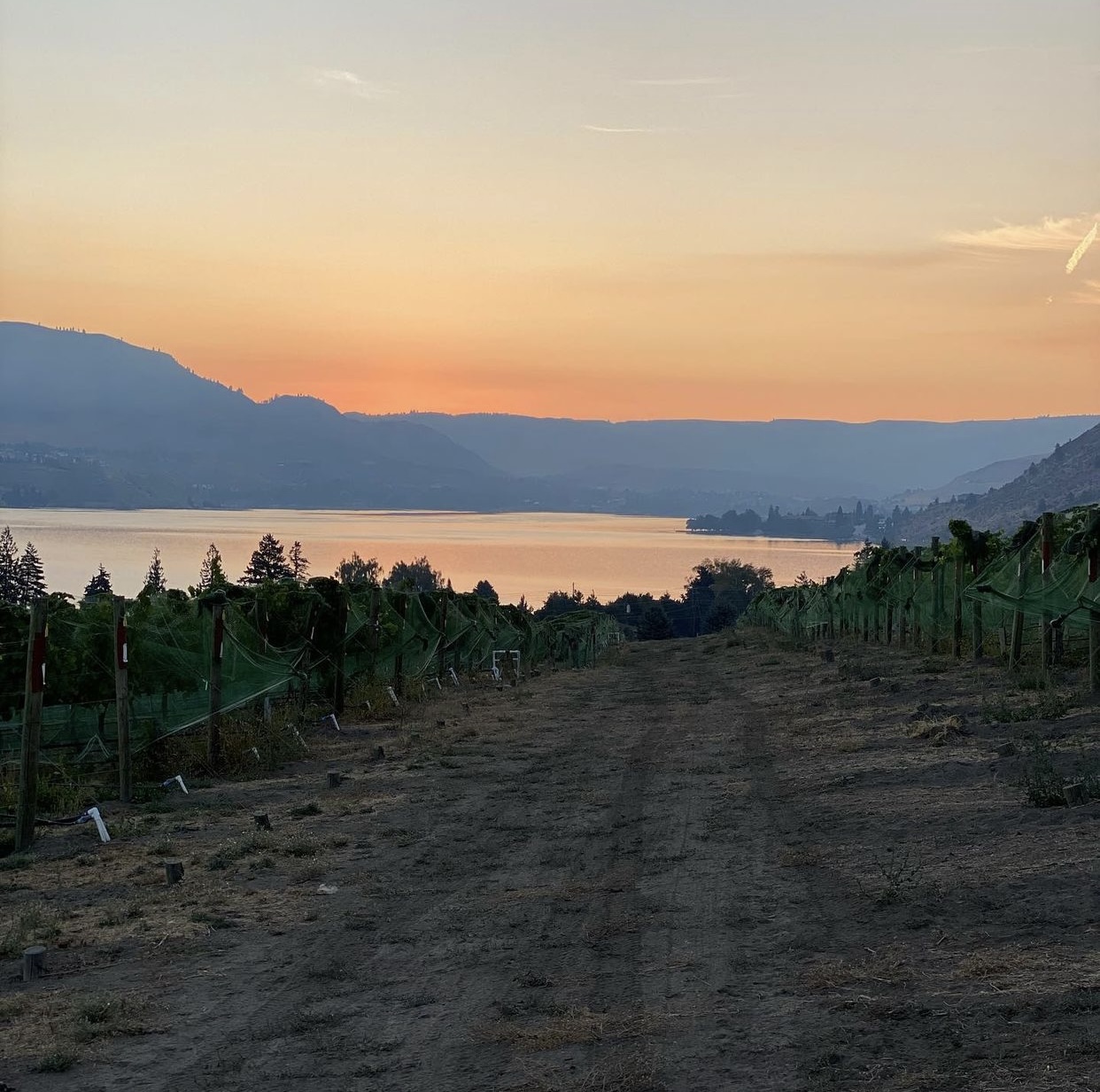
WW: ¿Qué es lo que te emociona en este momento desde donde estás sentado?
Nic: Creo que recién estamos comenzando, en términos de lo que es posible o lo que el estado de Washington puede hacer. Creo que podemos jugar con cualquiera. En cuanto a Lake Chelan, es un AVA joven, pero creo que está mejorando progresivamente. La gente está empezando a notar Lake Chelan. No es solo un destino. Tenemos un hermoso lago, pero creo que la gente está empezando a darse cuenta de que es un AVA del que vale la pena tomar nota.
Lo realmente interesante de Lake Chelan es que no hay muchos viñedos aquí. En comparación con nuestros vecinos al sur de nosotros. La mayoría de las uvas de la bodega provienen de otros AVA. Tenemos la suerte de poder cultivar alrededor de 36 acres de uvas cultivadas en la finca. Es genial poder estar involucrado en todo el proceso, desde el vino hasta la botella en una propiedad. Cuando alguien en la sala de degustación tiene una pregunta, puedo decir: “Toma, te puedo mostrar aquí”. Puede sacarlos físicamente y decir: “Esto es de lo que estamos hablando” o “Aquí es de donde viene esto o donde ha crecido”.
En Tsillan Cellars, tiene la capacidad de ver exactamente de dónde proviene el vino que está bebiendo. Puedes estar haciendo una probación en el césped con vista a nuestros viñedos para ver exactamente de qué viñedos proviene ese vino. Creo que eso es bastante especial. Es divertido ver a la gente hacer la conexión sobre lo que realmente significa “patrimonio”. En todas las épocas del año puedes mirar por la ventana de nuestro laboratorio y ver a la gente caminando por los viñedos. Tocar hojas, comer uvas, obtener una experiencia práctica. A la gente le encanta ese tipo de cosas, y es genial que tengan la oportunidad de experimentar eso aquí.
Tiene la capacidad de ver exactamente de dónde proviene el vino que está bebiendo.
WW: Mencionaste antes tus cirugías de espalda. ¿Qué tan aliviado fue obtener esa luz verde y cómo te va ahora? ¿Cómo funciona el vino en comparación con lo que estabas haciendo?
Nic: Fue un gran alivio recibir luz verde. La parte más difícil ha sido aprender a confiar en que mi espalda puede manejar algunas de las cosas que solía pedirle que hiciera. También, saber dónde están mis limitaciones y no excederlas. Desde la bodega hasta los viñedos, este trabajo puede ser físicamente exigente, pero no se compara con mi último trabajo. Mi espalda me va a dar problemas por el resto de mi vida. Y eso es justo lo que es. Pero está bien. Está bien lo suficiente.
Trabajar en Tsillan Cellars es completamente diferente a mi profesión anterior. Me encanta tener la oportunidad de participar en el cultivo y la elaboración del vino. El vino me ha dado mi momento “ajá.” Siempre supe que quería cultivar, hacer eso y tener la oportunidad de hacer vino, también es lo mejor de ambos mundos. Me encanta.
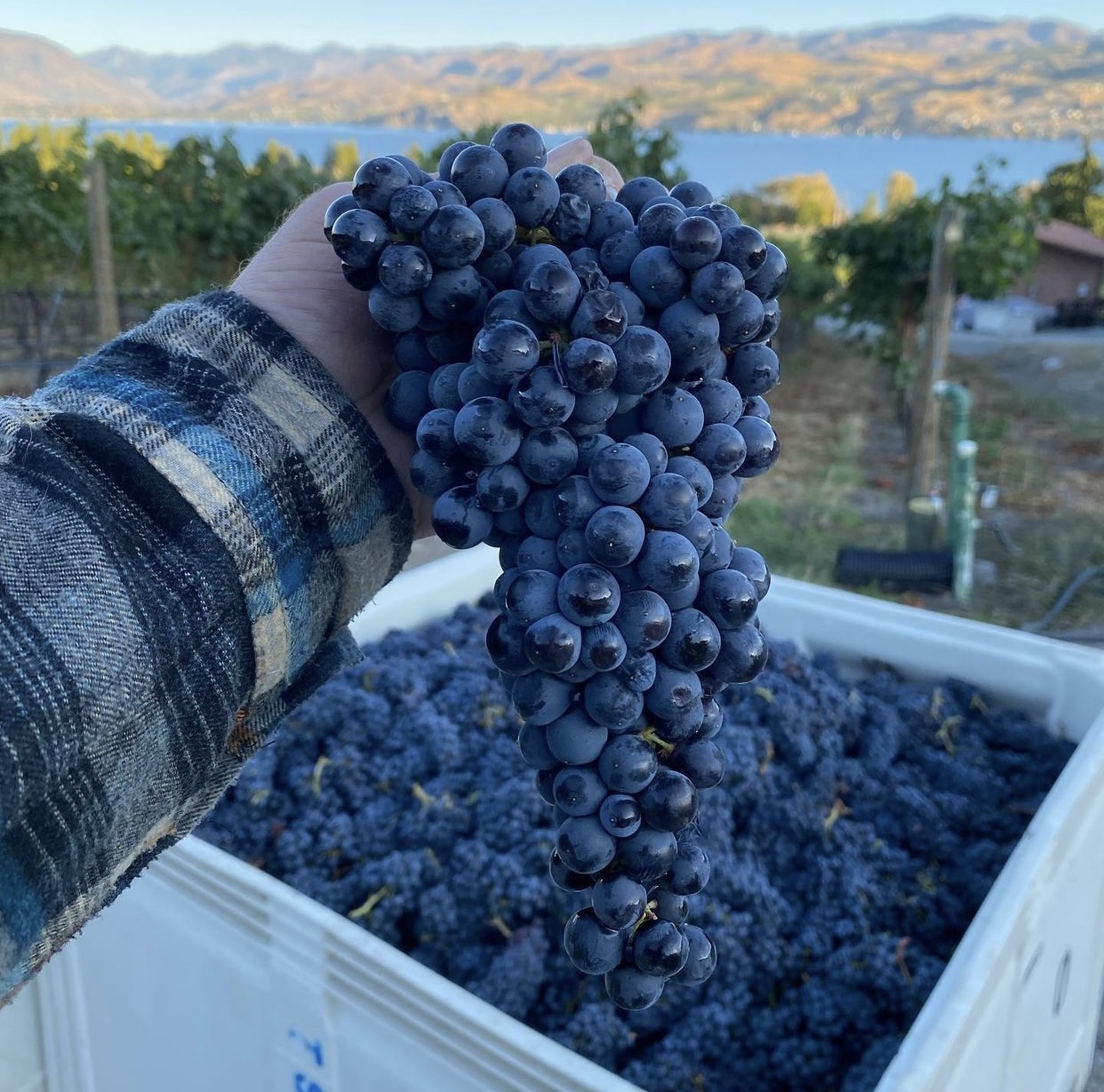
WW: Usted mencionó que el trabajo en Les Schwab era un trabajo manual intenso. ¿Es eso lo que traes a esta industria? ¿Qué sabes aguantar? ¿Ese tipo físico de adaptabilidad?
Nic: Sí, eso creo. Hubo muchos beneficios de Les Schwab. Definitivamente es mucho trabajo manual, pero hay muchas otras cosas que suceden allí. El final de la gestión, aprender a trabajar con personas, cómo tener un grupo de diferentes tipos de personas juntas y poder descubrir cómo trabajar, resolver problemas entre ellos o situaciones.
Definitivamente te prepara mentalmente para el trabajo, solo para poder bajar la cabeza e ir a trabajar y no dejar que las 18 o 20 horas te molesten. Pero la cosecha es otro oso. Cuando terminas un día de 14 horas y piensas que “te vas temprano”, que duermes un par de horas más, cambia la forma en que ves las cosas. Tres o cuatro días este último año, trabajamos más de 20 horas. Esos son días largos y simplemente se acumulan y acumulan.
Te acostumbras a cuatro horas de sueño. Eso es bastante común. Eres una especie de zombi funcional.
WW: ¿Qué historias te emociona contar o profundizar o conocer o mostrar, para mostrarle a la gente de este lado de la industria lo que estás haciendo?
Nic: Estoy emocionado de contarles ambos lados. Recuerdo cuando Bob Jankelson, el dueño de Tsillan Cellars, me preguntó: “¿Eres más feliz en los viñedos o en la bodega?” Para mí, es una división 50/50 porque no sería feliz sin ninguno de los dos. Quiero estar afuera, y quiero estar adentro. Estoy emocionado de ver a dónde va esto aquí. Creo que tenemos uno de los mejores sitios en el valle. Y creo que se ha puesto una barra alto aquí, pero creo que esa barra se puede subir.
WW: Un par de preguntas al azar para ti. Fuera de todo el trabajo del vino, ¿qué te mantiene en marcha? ¿Eres una persona de tipo chimenea? ¿Estás al aire libre un montón? ¿Tienes una familia? ¿Qué hace a Nic Nic?
Nic: Me encanta ir a otras bodegas y AVA, y simplemente salir y ver lo que hacen los demás. Pero en casa, definitivamente soy un fanático de los deportes. Me gusta el aire libre. Me encanta ir de cazeria, acampar y pescar. Estar afuera, pasar tiempo con la familia y cosas así. Eso es lo bueno, ¿sabes?
WW: ¿Algún lugar favorito que te guste explorar?
Nic: Tenemos un lugar en la frontera con Canadá. Eso es absolutamente fabuloso. Podemos simplemente ir y relajarnos, nadar, pescar, y lo que quiéranos hacer. Mi abuela sube allí y pasa todo el verano, es como su escape. Es un lugar especial. Un hogar lejos de casa.
WW: ¿Cuáles son tus sonidos no musicales favoritos?
Nic: Sonidos no musicales. Hm. El sonido de un alce. Un pájaro somorgujo ¿Alguna vez has oído de un pájaro somorgujo?
WW: Oh sí.
Nic: Es genial. Estoy dejando un espacio en blanco en el tercero.
WW: Tal vez sea el sonido del espacio en blanco.
Nic: Ahí tienes.
Siempre supe que quería cultivar, hacer eso y tener la oportunidad de hacer vino, también es lo mejor de ambos mundos.—Nic Stevens
